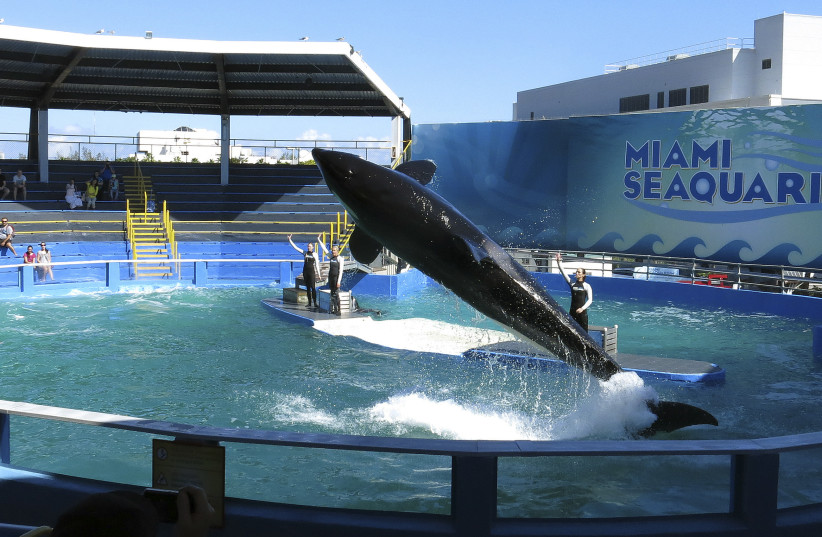Lolita the orca, also known as Toki, died at the Miami Seaquarium on Friday, just months after a deal was reached to release her to an ocean habitat after over 50 years in captivity.
"Over the last two days, Toki started exhibiting serious signs of discomfort, which her full Miami Seaquarium and Friends of Toki medical team began treating immediately and aggressively," said the Seaquarium on Saturday. "Despite receiving the best possible medical care, she passed away Friday afternoon from what is believed to be a renal condition."
"Toki was an inspiration to all who had the fortune to hear her story and especially to the Lummi nation that considered her family. Those of us who have had the honor and privilege to spend time with her will forever remember her beautiful spirit," added the Seaquarium.
The Seaquarium was closed on Saturday to give the staff at the park time "to reflect on Lolita’s life and legacy."

Eduardo Albor, CEO of The Dolphin Company which owns the aquarium, tweeted "Not a single effort we made to give Lolita an opportunity was a waste of time and money. My heart is truly broken. Lolita captured me since [the] first day. Love at first sight. Thank you for making believe in what we do. The care team leaded by Mike Partica and Dr. Reiderson are true heroes."
Indianapolis Colts owner Jim Irsay, who had helped fund efforts to release Lolita, responded to the death as well on Saturday, tweeting "I am heartbroken that Toki has left us. Her story captured my heart, just as it did millions of others. I was honored to be part of the team working to return her to her indigenous home, and I take solace in knowing that we significantly improved her living conditions this past year. Her spirit and grace have touched so many. Rest in peace, dear Toki."
Lolita was set to be freed to ocean habitat
In March, the Miami Seaquarium said it had reached a "binding agreement" with nonprofit Friends of Lolita to return the whale, who recently retired from performances, to an ocean habitat in the Pacific Northwest within two years.
Lolita, a 57-year-old orca captured in 1970 in a cove off Seattle, was also known as Toki, a name that is short for the whale's Native American name of Tokitae, the Miami Herald reported at the time. The plan to return Lolita to her natural habitat required federal approval, according to the newspaper.
The process to return Lolita to her "home waters" was years in the making, beginning with the transfer of the aquarium's ownership to The Dolphin Co, Miami-Dade County Mayor Daniella Levine Cava said at a news conference. The company later partnered with the nonprofit to provide medical care to the whale.
The Seaquarium's previous owner, SeaWorld Entertainment, phased out killer whale shows in 2016. Lolita, once a top attraction at Seaquarium, retired from shows in March 2022 after management changed hands.
The push to free Lolita gained momentum after the 2013 documentary Blackfish highlighted the captivity of orcas.
Animal rights advocates for years fought unsuccessfully in court to obtain Lolita's freedom after the National Oceanic and Atmospheric Administration added orcas to the endangered species list in 2015.
Killer whales are highly social mammals that have no natural predators and can live up to 80 years.
